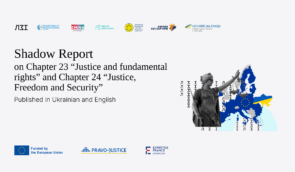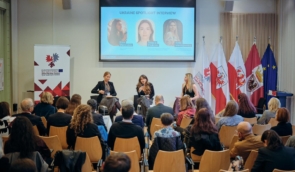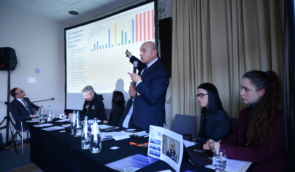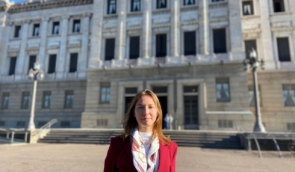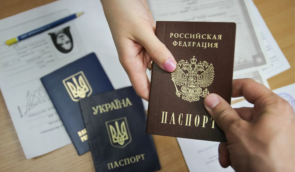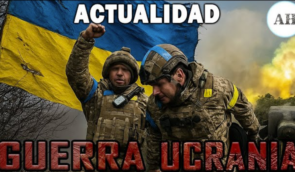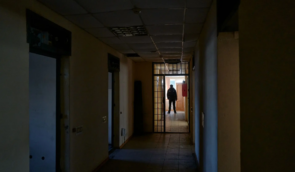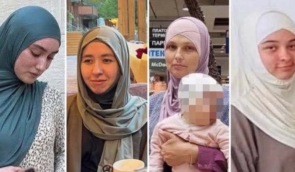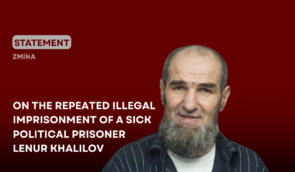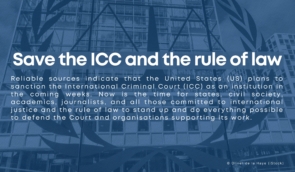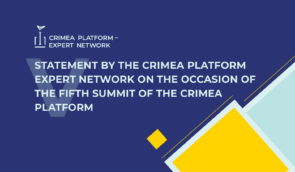ZMINA joined Twitter Spaces about the denial of medical aid to Crimean political prisoners
On June 26, Human Rights Centre ZMINA and Euromaidan Press organised Twitter Spaces “Denial of medical assistance as a form of torture: stories of political prisoners from Crimea”. Tetiana Zhukova from ZMINA, Eugenia Andreyuk from World Organisation Against Torture (OMCT) and Maria Kurinna from Human Rights House Crimea joined an online discussion.
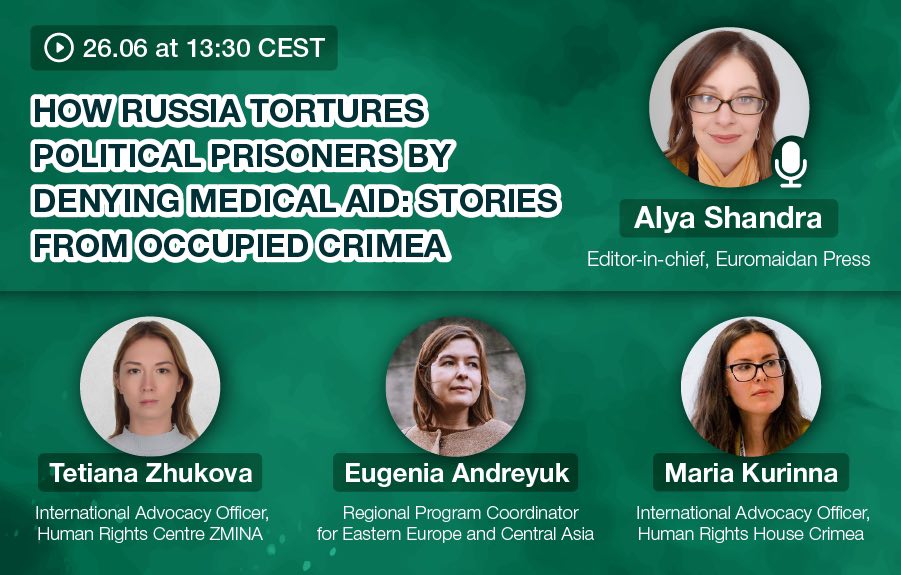
“Since the beginning of the Russian occupation of Crimea in 2014, mass searches have taken place in the homes of civilians, many have been imprisoned and taken to an unknown direction, tortured, held incommunicado, forced to make false confessions on camera, not allowed to speak Ukrainian or Crimean Tatar,” told International Advocacy Officer of ZMINA Tetiana Zhukova.
She stated that, currently, there are Crimean 180 political prisoners: Leniie Umerova – a young Crimean Tatar girl who was going to see her cancer-ill father in the occupied Crimea but she was detained while crossing the border and accused of espionage. Iryna Danylovych – a human rights defender, citizen journalist and nurse who was accused of illegal storage of explosives. Bohdan Ziza – a painter who was accused of extremism and terrorism because of throwing blue and yellow paintings at the front door of the Russian administration building in Crimea. Nariman Dzhelyal and brothers Akhtemovy – Crimean activists who were accused of sabotage on the gas pipeline even though they were in a completely different location when the sabotage allegedly “occurred”.
“Failure to provide medical care to political prisoners in Russian or Crimean prisons is not an isolated case but a systemic practice. Currently, there are around 50 political prisoners who are in poor health and are denied medical assistance. Two of them have already died in February this year – Dzhemil Hafarov and Kostiantyn Shyring,” highlighted Zhukova.
In particular, Iryna Danylovych is in mortal danger now. She was detained in sub-zero temperatures and not provided with medical aid, as a result, she lost her hearing in the left ear and constantly loses concentration and consciousness.
The Crimean political prisoner Emir-Usein Kuku was beaten during his first detention back in 2015. The received injuries were not treated and became chronic. In imprisonment, he was not provided with medical assistance due to which his health deteriorated significantly and, finally, he was hospitalized in a critical state.
Azamat Eiupov has heart disease and his condition deteriorated sharply due to the lack of medical assistance. He suffered four strokes in detention. Now, he is in a critical condition and needs urgent hospitalization. However, the medical staff of the prison diagnosed him only with osteochondrosis and returned him to the cell with minimal treatment.
Zhukova called an audience to be the voice of political prisoners and to share their stories, as well as highlighted the need to establish a mechanism for the release of political prisoners and civilian hostages.
“Finally, only the de-ocupation will ensure the freedom of illegally imprisoned people and a peaceful life without oppression on the Ukrainian peninsula of Crimea,” summed up Tetiana Zhukova.
If you have found a spelling error, please, notify us by selecting that text and pressing Ctrl+Enter.

